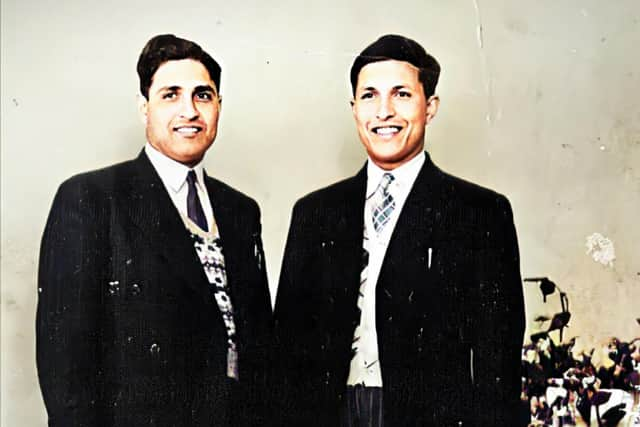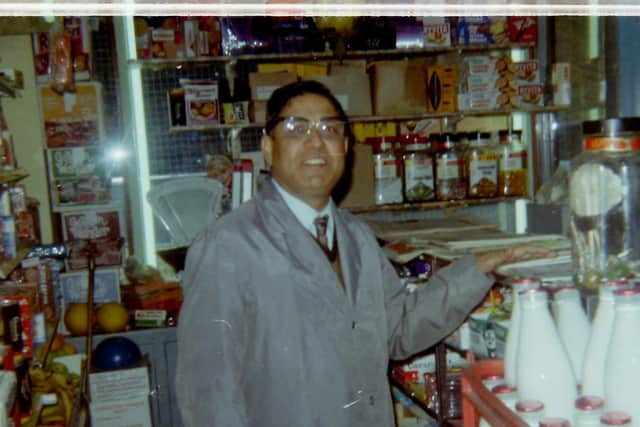Tracing Fateh Ali, a travelling salesman on the Isle of Arran
Fateh Ali, who arrived in Scotland from Pakistan in 1947 without little money or knowledge of English, found new roads to carve his fortune and build a new life for those he loved.
Now the descendants of the late travelling salesman, who include some 20 grandchildren and 37 great grand-children, most who live in the Glasgow area, are trying to trace people and stories that surrounded Mr Ali to enrich the history of both their family and immigration to Scotland.
Advertisement
Hide AdAdvertisement
Hide AdHis grandson, Tariq Ali, has launched an appeal for information about his grandfather, who worked on Arran from the late 1940s until the late 1950s, with locals apparently giving him the name Johnny.
Tariq, a digital specialist, said: “When I think about my grandfather, I just find him exceptionally brave given all the sacrifices he made.
"He left his family and came to a foreign country not knowing the language or how he was going to make money.
"We are just so grateful for all that he did. If he hadn’t, none of his descendants would be here.”


The salesman would sometimes take his son and daughter – Ashaque Ali and Anwar Ghafur – on his sales trips to Arran, where his children were given tea and biscuits by locals.
Tariq said one islander let his grandfather sleep in the barn, with the salesman’s wife worried that he would bring fleas back with him from his travels.
He said: “I picture my nana with his large suitcase politely knocking on doors. The surprise and curiosity as the inhabitants open the door to a dapper, brown-skinned man in his 20s – the first man of colour many of them will have seen.


"Did they treat him kindly? Did they offer him food or shelter when it was cold? By all accounts, they did treat him very well and hospitably.”
Advertisement
Hide AdAdvertisement
Hide AdIt is understood that friends who travelled before him and settled in Glasgow attracted him to Scotland, with Mr Ali first travelling thousands of kilometres from a village in rural Faisalabad, in north Pakistan, to what is now Mumbai, India, to board a ship in 1947.
At home, his wife, two children and five brothers and sisters remained, with Mr Ali always intending to make money, send it home and at some point return to Pakistan.
On arrival in Glasgow, he lived in a shared flat with other immigrants in Oxford Street in the Gorbals, with work soon secured after meeting a wholesaler who gave him clothes on credit to sell.
With the help of his bicycle, Mr Ali was off to break the untapped market of Arran, with trips also taken to Bute, Millport and Campbeltown.
Ultimately, Mr Ali, who died 45 years ago, decided to move his family to Glasgow and went into partnership in a grocery store in the Gorbals, which opened in 1959.
Tariq said: “I ask that, whilst there are still relatives and family friends alive who know of the stories of the first generation of immigrants, these should be captured so we don’t forget their sacrifices and contributions to recent Scottish history.”
Comments
Want to join the conversation? Please or to comment on this article.
